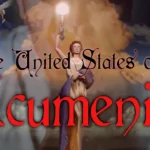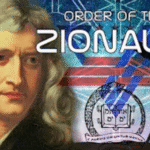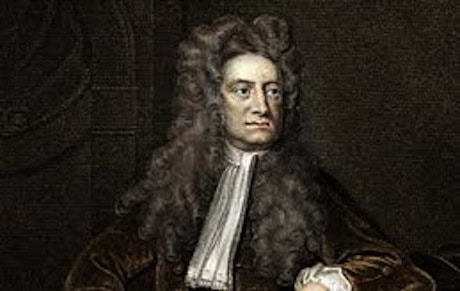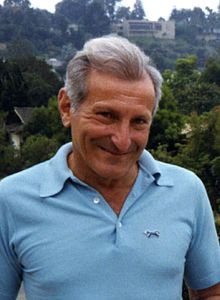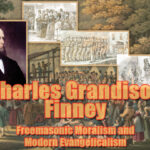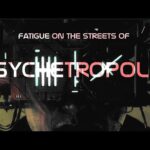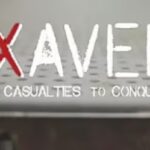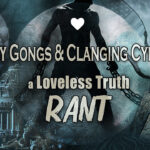This is an older article (October 9th, 2010), but it’s still very significant in light of the battle to control public opinion over the “global warming”/”climate change” fraud.
Harold Lewis is Emeritus Professor of Physics at the University of California, Santa Barbara. Here is his letter of resignation to Curtis G. Callan Jr, Princeton University, President of the American Physical Society.
Anthony Watts describes it thus:
This is an important moment in science history. I would describe it as a letter on the scale of Martin Luther, nailing his 95 theses to the Wittenburg church door. It is worthy of repeating this letter in entirety on every blog that discusses science.
It’s so utterly damning that I’m going to run it in full without further comment. (H/T GWPF, Richard Brearley).
Dear Curt:
When I first joined the American Physical Society sixty-seven years ago it was much smaller, much gentler, and as yet uncorrupted by the money flood (a threat against which Dwight Eisenhower warned a half-century ago). Indeed, the choice of physics as a profession was then a guarantor of a life of poverty and abstinence—it was World War II that changed all that. The prospect of worldly gain drove few physicists. As recently as thirty-five years ago, when I chaired the first APS study of a contentious social/scientific issue, The Reactor Safety Study, though there were zealots aplenty on the outside there was no hint of inordinate pressure on us as physicists. We were therefore able to produce what I believe was and is an honest appraisal of the situation at that time. We were further enabled by the presence of an oversight committee consisting of Pief Panofsky, Vicki Weisskopf, and Hans Bethe, all towering physicists beyond reproach. I was proud of what we did in a charged atmosphere. In the end the oversight committee, in its report to the APS President, noted the complete independence in which we did the job, and predicted that the report would be attacked from both sides. What greater tribute could there be?How different it is now. The giants no longer walk the earth, and the money flood has become the raison d’être of much physics research, the vital sustenance of much more, and it provides the support for untold numbers of professional jobs. For reasons that will soon become clear my former pride at being an APS Fellow all these years has been turned into shame, and I am forced, with no pleasure at all, to offer you my resignation from the Society.
It is of course, the global warming scam, with the (literally) trillions of dollars driving it, that has corrupted so many scientists, and has carried APS before it like a rogue wave. It is the greatest and most successful pseudoscientific fraud I have seen in my long life as a physicist. Anyone who has the faintest doubt that this is so should force himself to read the ClimateGate documents, which lay it bare. (Montford’s book organizes the facts very well.) I don’t believe that any real physicist, nay scientist, can read that stuff without revulsion. I would almost make that revulsion a definition of the word scientist.
So what has the APS, as an organization, done in the face of this challenge? It has accepted the corruption as the norm, and gone along with it. For example:
1. About a year ago a few of us sent an e-mail on the subject to a fraction of the membership. APS ignored the issues, but the then President immediately launched a hostile investigation of where we got the e-mail addresses. In its better days, APS used to encourage discussion of important issues, and indeed the Constitution cites that as its principal purpose. No more. Everything that has been done in the last year has been designed to silence debate
2. The appallingly tendentious APS statement on Climate Change was apparently written in a hurry by a few people over lunch, and is certainly not representative of the talents of APS members as I have long known them. So a few of us petitioned the Council to reconsider it. One of the outstanding marks of (in)distinction in the Statement was the poison word incontrovertible, which describes few items in physics, certainly not this one. In response APS appointed a secret committee that never met, never troubled to speak to any skeptics, yet endorsed the Statement in its entirety. (They did admit that the tone was a bit strong, but amazingly kept the poison word incontrovertible to describe the evidence, a position supported by no one.) In the end, the Council kept the original statement, word for word, but approved a far longer “explanatory” screed, admitting that there were uncertainties, but brushing them aside to give blanket approval to the original. The original Statement, which still stands as the APS position, also contains what I consider pompous and asinine advice to all world governments, as if the APS were master of the universe. It is not, and I am embarrassed that our leaders seem to think it is. This is not fun and games, these are serious matters involving vast fractions of our national substance, and the reputation of the Society as a scientific society is at stake.
3. In the interim the ClimateGate scandal broke into the news, and the machinations of the principal alarmists were revealed to the world. It was a fraud on a scale I have never seen, and I lack the words to describe its enormity. Effect on the APS position: none. None at all. This is not science; other forces are at work.
4. So a few of us tried to bring science into the act (that is, after all, the alleged and historic purpose of APS), and collected the necessary 200+ signatures to bring to the Council a proposal for a Topical Group on Climate Science, thinking that open discussion of the scientific issues, in the best tradition of physics, would be beneficial to all, and also a contribution to the nation. I might note that it was not easy to collect the signatures, since you denied us the use of the APS membership list. We conformed in every way with the requirements of the APS Constitution, and described in great detail what we had in mind—simply to bring the subject into the open.<
5. To our amazement, Constitution be damned, you declined to accept our petition, but instead used your own control of the mailing list to run a poll on the members’ interest in a TG on Climate and the Environment. You did ask the members if they would sign a petition to form a TG on your yet-to-be-defined subject, but provided no petition, and got lots of affirmative responses. (If you had asked about sex you would have gotten more expressions of interest.) There was of course no such petition or proposal, and you have now dropped the Environment part, so the whole matter is moot. (Any lawyer will tell you that you cannot collect signatures on a vague petition, and then fill in whatever you like.) The entire purpose of this exercise was to avoid your constitutional responsibility to take our petition to the Council.
6. As of now you have formed still another secret and stacked committee to organize your own TG, simply ignoring our lawful petition.
APS management has gamed the problem from the beginning, to suppress serious conversation about the merits of the climate change claims. Do you wonder that I have lost confidence in the organization?
I do feel the need to add one note, and this is conjecture, since it is always risky to discuss other people’s motives. This scheming at APS HQ is so bizarre that there cannot be a simple explanation for it. Some have held that the physicists of today are not as smart as they used to be, but I don’t think that is an issue. I think it is the money, exactly what Eisenhower warned about a half-century ago. There are indeed trillions of dollars involved, to say nothing of the fame and glory (and frequent trips to exotic islands) that go with being a member of the club. Your own Physics Department (of which you are chairman) would lose millions a year if the global warming bubble burst. When Penn State absolved Mike Mann of wrongdoing, and the University of East Anglia did the same for Phil Jones, they cannot have been unaware of the financial penalty for doing otherwise. As the old saying goes, you don’t have to be a weatherman to know which way the wind is blowing. Since I am no philosopher, I’m not going to explore at just which point enlightened self-interest crosses the line into corruption, but a careful reading of the ClimateGate releases makes it clear that this is not an academic question.
I want no part of it, so please accept my resignation. APS no longer represents me, but I hope we are still friends.
Hal
Harold Lewis is Emeritus Professor of Physics, University of California, Santa Barbara, former Chairman; Former member Defense Science Board, chmn of Technology panel; Chairman DSB study on Nuclear Winter; Former member Advisory Committee on Reactor Safeguards; Former member, President’s Nuclear Safety Oversight Committee; Chairman APS study on Nuclear Reactor Safety
Chairman Risk Assessment Review Group; Co-founder and former Chairman of JASON; Former member USAF Scientific Advisory Board; Served in US Navy in WW II; books: Technological Risk (about, surprise, technological risk) and Why Flip a Coin (about decision making)
Harold (“Hal”) Warren Lewis
(October 1, 1923 – May 26, 2011)
Before his dramatic resignation from the American Physical Society on October 6, 2010 over the society position on global warming (the text of his letter is available here and the APS reply and WUWT discussion is available here), Dr. Harold Lewis would not have been described as one of the rock stars of science. Few people outside of the worlds of physics and government had ever heard of him, yet his was a career of quiet but substantive accomplishment. His biographical blurb on the website of the Global Warming Policy Foundation, which he joined in October of 2010, is a good summary of his career:
Emeritus Professor of Physics, University of California, Santa Barbara, former Chairman; Former member Defense Science Board, chairman of Technology panel; Chairman DSB study on Nuclear Winter; Former member Advisory Committee on Reactor Safeguards; Former member, President’s Nuclear Safety Oversight Committee; Chairman APS study on Nuclear Reactor Safety Chairman Risk Assessment Review Group; Co-founder and former Chairman of JASON; Former member USAF Scientific Advisory Board; Served in US Navy in WW II; books: Technological Risk(about, surprise, technological risk) and Why Flip a Coin (about decision making)
Though not a household name, Dr. Lewis, one of the last of the great Robert Oppenheimer’s students and with whom he co-authored several papers, was considered one of the best physicists of his time and was well regarded in the physics community. He was a founding member of the JASON Defense Advisory Group and its chairman from 1966 to 1973, an association that did create controversy during the Vietnam conflict.
JASON took up a great deal of his time and effort and is discussed extensively in the transcript of an oral history interview he gave in 1986 for the Center for History of Physics of the American Institute of Physics. Among other things, the transcript makes clear his position that the role of Scientific Advisory Groups was to advise on things that scientists thought government should pay attention to, rather than advising in the things that government was actually paying attention to. It also documents an ongoing struggle to maintain autonomy from government agencies, with the JASON group engaging in projects of their own choosing, doing basic research while at the same time providing solutions to important needs.
He made a point of the fact that JASON provided a good return on a fairly small government investment. It certainly provides context for his assertions that floods of government money have corrupted science and the APS in particular.
On behalf of all our readers, contributors and authors, our condolences go out to his wife, Mary, and their family.
_____________________________________________________
http://www.aip.org/history/ohilist/4742.html
===============================================================
Note from Anthony: Regular WUWT reader (and now contributor) Robert Phelancompiled this obituary, and it was he who alerted me to the news. From what I know of him, Hal Lewis was a quiet man, not only in life, but also in death. Robert Phelan writes in his email to me about how little information there is, which is why it has taken so long for it to be reported here:
It’s an odd thing, but I could find no obituary for him anywhere, not in his home town papers, not in the Los Angeles or San Francisco papers… just a small mention on the UCSB Campus Notes Page here:http://www.ia.ucsb.edu/93106/2011/June/notes.html , a small mention in the UCSB Retirees / Emeriti News Letter, and the addition of his death date in his Wikipedia entry.
Given how private and quiet Dr. Lewis was, it underscores how extraordinary his resignation from APS was. I thank him for his courage to do what must have been the most painful professional act of his life.



